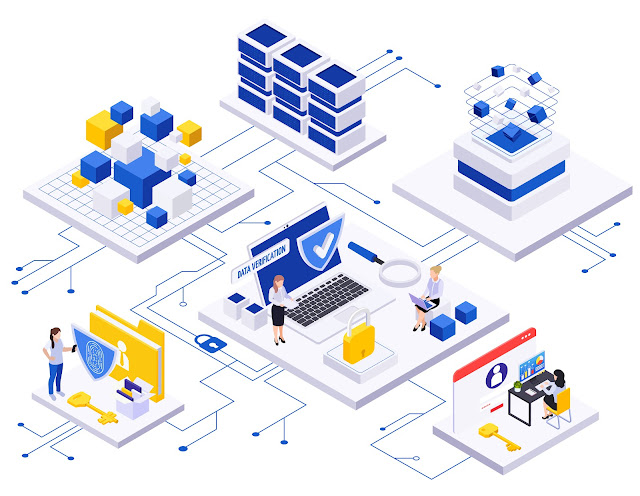Blockchain App Development: A Paradigm Shift in Decentralized Technologies
The advent of blockchain technology has catalyzed transformative shifts across multiple industries, offering decentralized, transparent, and cryptographically secure solutions. From financial systems to healthcare and supply chain management, blockchain app development is emerging as a cornerstone of contemporary digital infrastructures. This discourse delves into the sophisticated mechanics of blockchain-based applications, examining their theoretical foundations and practical implications for businesses and individual users alike.
.jpg) |
Conceptualizing Blockchain App Development
Blockchain app development entails the design and implementation of applications that exploit the immutable, distributed ledger framework inherent to blockchain technology. Unlike conventional applications that depend on centralized databases, blockchain-based applications, commonly referred to as Decentralized Applications (DApps), leverage a peer-to-peer (P2P) network to maintain operational integrity, thereby eliminating single points of failure.
A critical component of these applications is the smart contract, a self-executing protocol defined by pre-encoded rules and conditions. By obviating intermediaries, smart contracts enhance transactional efficiency, enforce cryptographic accountability, and facilitate trustless interactions.
Core Advantages of Blockchain App Development
1. Cryptographic Security and Immutability
Blockchain’s robust encryption mechanisms ensure unparalleled data security. Once recorded, data on the blockchain becomes immutable, rendering it impervious to unauthorized modifications. This attribute is particularly advantageous in applications handling financial transactions, identity verification, and confidential records.
2. Transparency and Decentralized Trust Mechanisms
Blockchain architecture inherently promotes transparency. Transactions, whether on public or private ledgers, are verifiable by network participants, mitigating the risks associated with fraud, manipulation, and data asymmetry.
3. Cost Optimization through Disintermediation
Traditional financial and contractual processes often necessitate intermediaries, leading to inefficiencies and increased costs. Blockchain-based applications eliminate these intermediaries, substantially reducing transaction fees and expediting procedural workflows.
4. Operational Efficiency through Automation
Smart contracts automate complex workflows, significantly diminishing human error and inefficiencies. In domains such as financial services, supply chain logistics, and digital identity management, automation enhances precision and reliability.
Pioneering Use Cases of Blockchain Applications
1. Financial Ecosystems and Crypto economics
The financial sector has spearheaded the adoption of blockchain, fostering innovations such as decentralized finance (DeFi), cryptocurrency exchanges, and algorithmic stable coins. These developments redefine traditional financial paradigms by offering censorship-resistant, non-custodial alternatives.
2. Supply Chain Integrity and Provenance Tracking
Blockchain’s ability to provide real-time, tamper-resistant tracking mechanisms has led to its integration into supply chain management. Industry leaders such as IBM and Walmart employ blockchain to enhance supply chain transparency and eradicate counterfeit goods.
3. Healthcare Data Management and Interoperability
In healthcare, blockchain fosters the secure exchange of medical records, ensuring data integrity and interoperability across institutions while safeguarding patient privacy through cryptographic access controls.
4. Tokenized Real Estate Transactions
Blockchain-enabled smart contracts facilitate seamless property transactions, eliminating traditional bureaucratic hurdles, reducing fraud risks, and expediting ownership verification.
5. Gaming and Digital Asset Tokenization
The gaming sector has witnessed an upsurge in blockchain applications, particularly through Non-Fungible Tokens (NFTs), which enable provable ownership and exchange of digital assets within gaming ecosystems.
Conclusion
Blockchain app development is redefining digital interactions by integrating decentralization, security, and automation. As industries transition toward blockchain-enabled infrastructures, the demand for advanced blockchain solutions is set to escalate. Enterprises and innovators poised to capitalize on this disruptive technology will gain a competitive edge in the evolving digital economy.
The question remains: How will your organization harness blockchain’s transformative potential? Now is the time to pioneer the next generation of blockchain applications and establish a foothold in the decentralized future.



Comments
Post a Comment